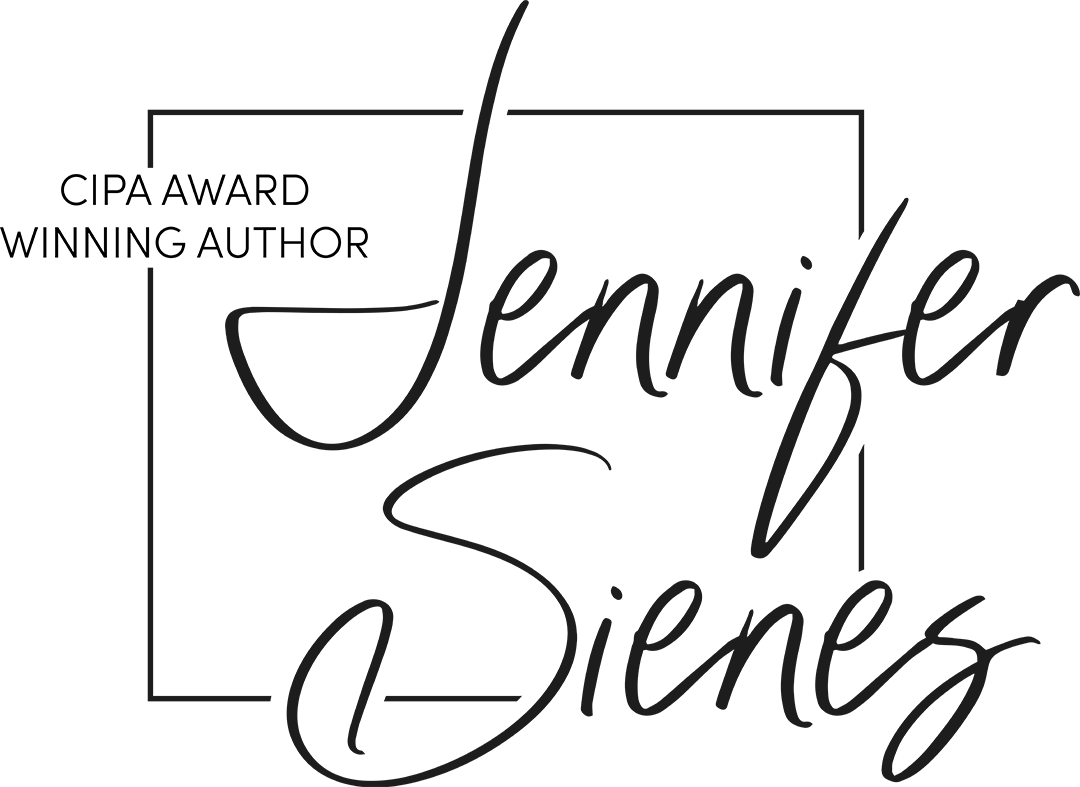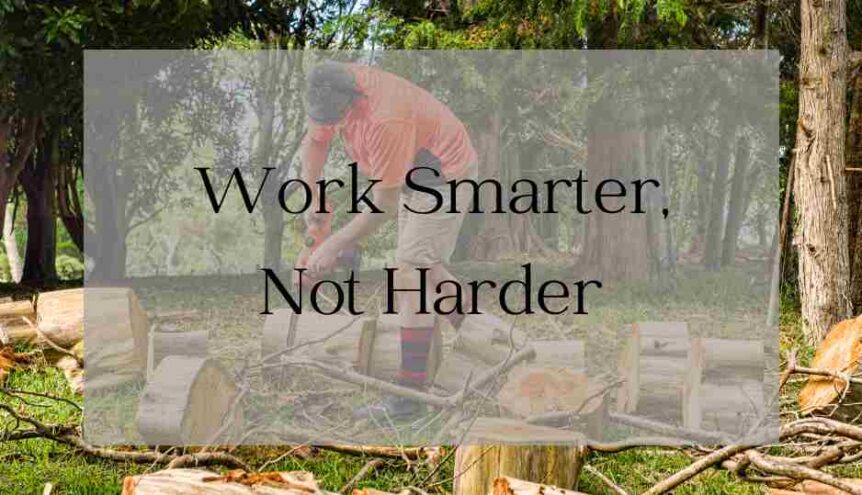Years ago, I bought the book 7 Habits of Highly Effective Teens by Sean Covey for my son Christopher. You may know Sean’s father, Stephen Covey, who wrote several leadership and self-help books. I didn’t know anything about the author—I was just desperate to motivate my son to do better in school, thereby doing better in life.
I had forgotten about that book until our interim pastor shared a story yesterday from Stephen Covey, which he used as a segue into his message on 2 Kings 6:1-7. This is the miracle that involved Elisha and the floating axe head.
I have to admit, I didn’t make the connection between the message of working smarter, not harder and Elisha’s miracle, but then it could’ve just been me. I crammed four days’ worth of work into one very long Saturday, so I wasn’t at my best during church yesterday.
When I got home, I Googled the story, and what came up was an article from Screeble based on Stephen Covey’s philosophy—not the exact story itself. I’ve included it below.
The Story of Two Woodcutters—Why You Should Sharpen Your Axes
Once upon a time, there were two woodcutters named Peter and John. They were often at loggerheads over who chopped more wood. So, one day, they decided to hold a competition to determine the winner. The rules were simple—whoever produces the most wood in a day wins.
So, the next morning, both of them took up their positions in the forest and started chopping away at their fastest possible speed. This lasted for an hour before Peter suddenly stopped. When John realized there was no chopping sound coming from his opponent’s side, he thought, Ah Ha! He must be tired already! And he continued to cut down his trees at double the pace.
A quarter of an hour passed, and John heard his opponent chopping again. So both of them carried on synchronously. John was starting to feel weary when the chopping from Peter stopped once again. Feeling motivated and smelling victory close by, John continued on, with a smile on his face.
This went on the whole day. Every hour, Peter would stop chopping for fifteen minutes while John kept going relentlessly. So, when the competition ended, John was absolutely confident he would take the triumph.
But to John’s astonishment, Peter had actually cut down more wood. How did this even happen? “How could you have chopped down more trees than me? I heard you stop working every hour for fifteen minutes!” exclaimed John.
Peter replied, “Well, it’s really simple. Every time I stopped work, while you were still chopping down trees, I was sharpening my axe.”
This story clearly exemplifies Stephen Covey’s philosophy of taking the time to recharge oneself in order to work productively. What that looks like for you might be different than it does for me. I think his advice is fabulous, but I want to take it in a little different direction.
I just know that I’ve recently been spending more and more time sitting in front of my computer but producing fewer and fewer words. What’s up with that?
I have always been fairly self-disciplined, which was why I had such a difficult time with my son’s (and the majority of students over the years) lack of discipline. I always thought if you needed to get something done, just make it happen. One of the biggies I tried to instill in my kids was the idea of delayed gratification. Work first, play later.
It was easy enough when I had a list of chores—like Saturday. But everything from scrubbing down the front and back steps and cleaning the outdoor cushions to doing laundry was physical.
But how do we accomplish the things that require creativity when we’re not feeling creative?
I shared about this struggle when I was writing Mayhem and Moonlight. Before, I had been whipping out three thousand words a day, which amounted to around three chapters a week. Thirty chapters in a book, and I could get a novel done within three months.
When productivity stalls, there is no one to pick up the slack. You’re on your own. Am I right? So, it’s time to go back to the basics.
Pray!
The first thing I do every morning (after I down a glass of water and get my cup of coffee) is spend some quiet time with the Lord. I’m reading through the Bible with Tara Leigh Cobble and the Bible Recap. I also have a favorite devotional (Streams in the Desert) and a prayer journal that I close with.
But it’s not enough.
When I sit down in front of my WIP (Work in Progress), I tend to jump right in. I’m one of those who reads over everything I wrote the day before and edit where I need to before moving forward. I’ve had many experts tell me this slows down the process, but my books (although they do have a plot) tend to be character driven. I have to be in my character’s frame of mind or mood before I can move forward. Plus, the final editing phase is very quick. Nine times out of ten (or maybe out of a hundred) I start rereading the work from the previous day and completely forget to stop and pray before going forward. I forget that I am just the typist. The Lord is the Author, and if I don’t give Him room to work, then I’m stalling the entire process.
Prioritize
Now, this should probably be done first, but I wanted to put the most critical at the top of the list, even if it’s not the first thing we need to do. Prayer precedes all else as far as I’m concerned.
What I learned while reading Winning the Week by Demir and Carey Bentley at the start of writing Mayhem and Moonlight is that we need to list out everything that needs to get done in a day, week, month.
You might have a list of twenty things, but some may need to get done sooner than others. Because I write a blog post every week, a newsletter every month, and publish two podcasts a month, there are times those tasks are more important than working on my WIP—even though I wouldn’t be doing any of the other tasks if I wasn’t a writer.
Schedule
Here is where things might get a bit tricky—at least it does for me. I’m much clearer thinking in the morning, so I need to spend the majority of my writing time before noon. Something happens to my brain after I eat lunch, and I have a hard time being creative. And no, I don’t think it’s what I’m eating.
When is your most productive time of the day? Whatever requires the most brain power, that’s where you should schedule it. I know authors who write for a couple of hours after they put their kids to bed. That would never work for me!
Calendar
This may seem like a no-brainer, but I was really bad about actually writing up a daily schedule. Having the schedule on my phone or computer doesn’t work for me, so I’ve gone back to the olden days and have a binder-type calendar with the entire year. There is space for each day where I actually write in the times and tasks. Recently, I’ve gotten lax about doing this, and it’s beginning to show.
I’ve woken up a couple of times in the middle of the night with a big “Oh, no!” hanging over my head. It’s easy to miss something (like posting a podcast or editing a critique partner’s work) when it’s not written down. I partially blame this on how fast the days zoom by. There are still 24 hours in a day, but it feels like there are only a few days in a week. Anyone else feel like this?
Back to the calendar. Once you fill it out, you actually need to look at it every day.
This may not be exactly what Stephen Covey had in mind when he wrote the story of the wood cutters, but this is my take. That’s the great thing about stories—everyone who reads them may interpret them differently.
Maybe you have some suggestions you can share that may help me or someone reading this post. If so, please share in the comments below.








Comments 2
Nine times out of ten (or maybe out of a hundred) I start rereading the work from the previous day and completely forget to stop and pray before going forward. I forget that I am just the typist. The Lord is the Author, and if I don’t give Him room to work, then I’m stalling the entire process.
I don’t know if I have any ideas for you, but the paragraph above spoke to me. I need to keep this in mind. I am retired so there are no start and stop times to my day, but just this morning I got out of bed, made coffee, and made breakfast. Then I went to the UPS store to return a couple of packages. After that I made lunch and just finished eating. There are ample times I should have prayed. I am not saying we don’t pray but it is generally only at the end of the day.
Author
I cannot function properly without starting my day with the Lord. It grounds me and reminds me Whose I am. Love you!